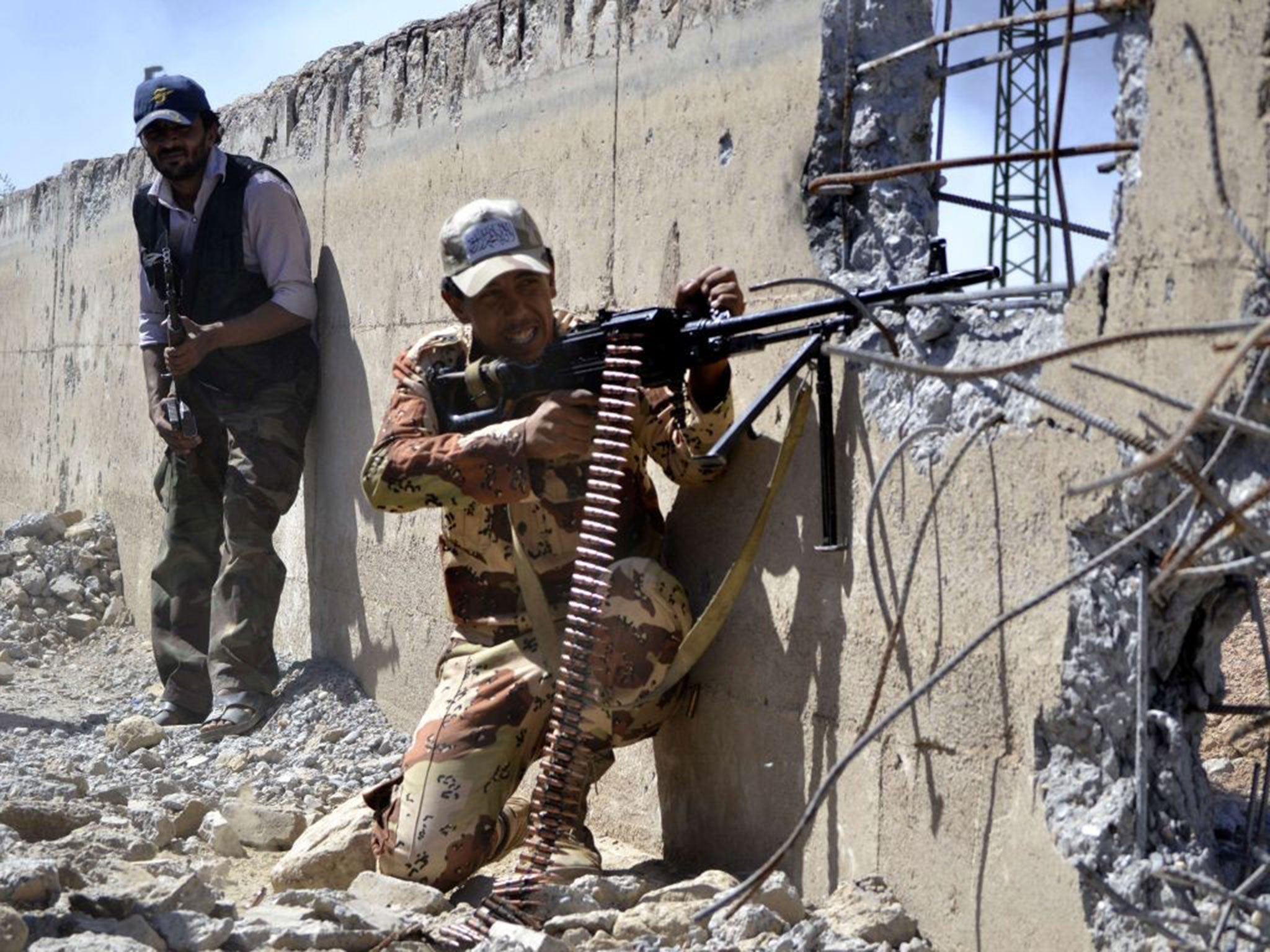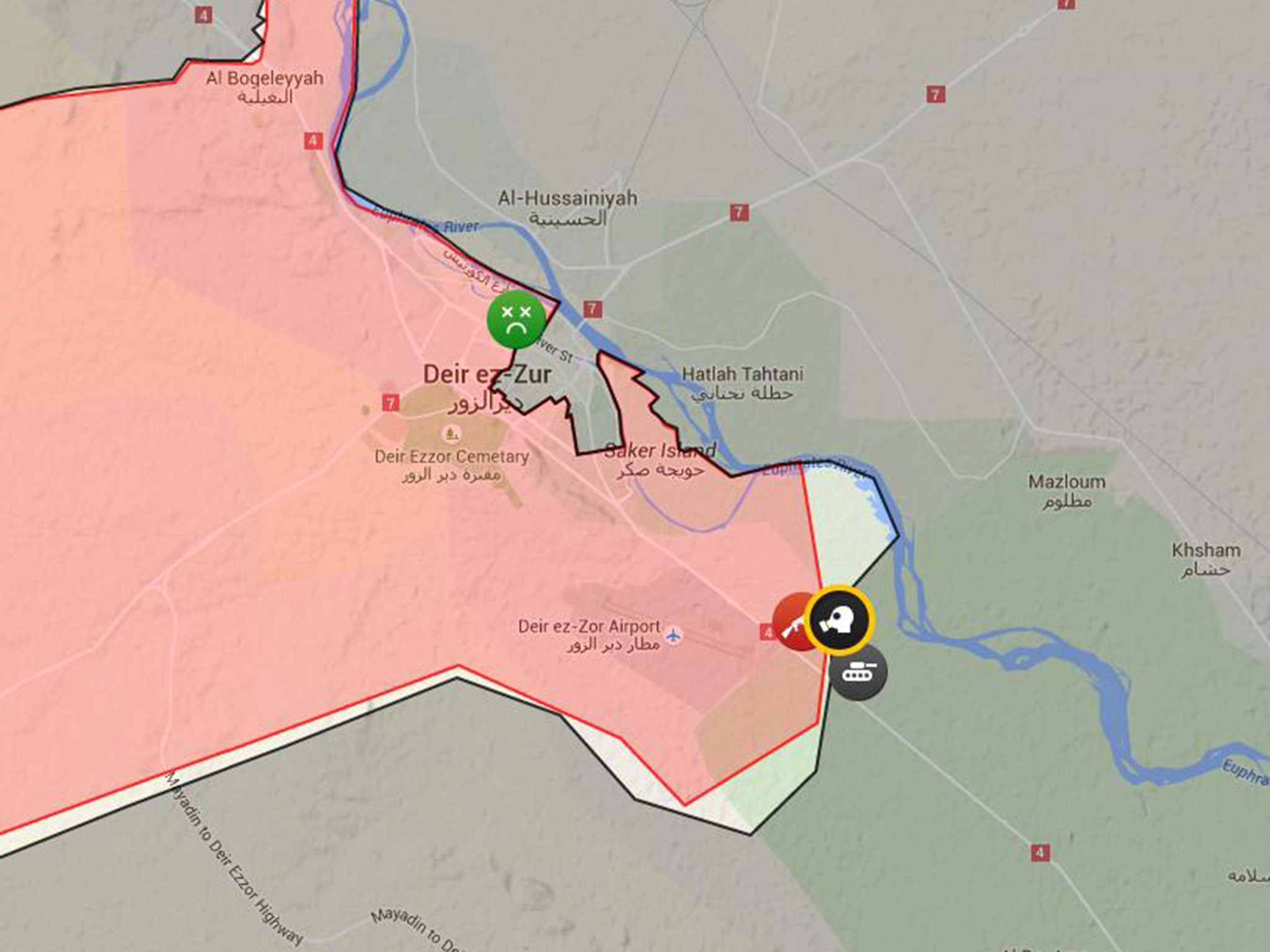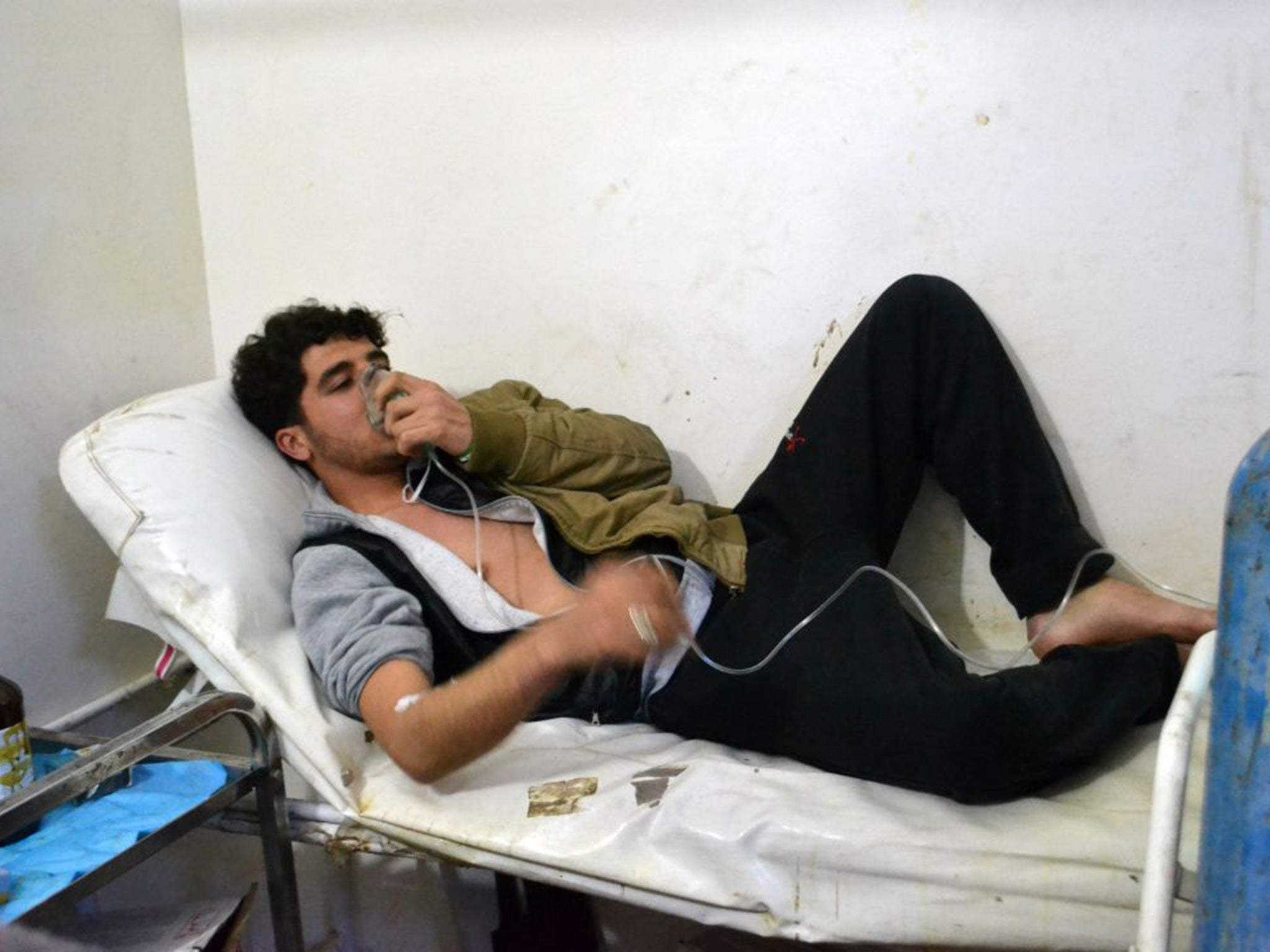Isis chemical weapons: Militants use 'mustard gas' against Syrian forces in battle for Deir ez-Zor airport
Officials previously confirmed the group was manufacturing and using chemical weapons in Syria and Iraq

Isis has reportedly used mustard gas against Bashar al-Assad’s forces in battles at a key airport in eastern Syria.
Militants were attempting to recapture Deir ez-Zor military airport when they deployed the chemical weapon on Monday, state media said.
Syrian television did not disclose how many casualties were sustained in the latest drive by the so-called Islamic State in the city, which is mainly under the group’s control, as is the surrounding countryside.

“The terrorists fired rockets carrying mustard gas,” said a statement said on the state-owned Ikhbariyah television station.
Deir ez-Zor’s airport has been a key flashpoint of battles between Isis, rival rebel groups and regime forces throughout the Syrian civil war.
The strategic city lies on vital routes linking the so-called Islamic State’s territories in western and northern Syria, including Raqqa, with Iraq.
Reports of mustard gas could not be independently verified but Kurdish and Turkmen groups have reported its use before.
Turkmen rebels reported mustard gas shelling in northern Iraq last month and the Organisation for the Prohibition of Chemical Weapons (OPCW) confirmed that the weapon killed a baby as Isis battled rebels in the Syrian town of Marea in August.

The head of an Isis unit attempting to develop chemical weapons was reportedly captured by American special forces earlier this year and was being questioned in Iraq.
The US has confirmed the group's use of mustard gas, which is believed to have been weaponised in a powdered form carried by artillery shells at strengths capable of maiming victims rather than killing them outright.
Amaq News Agency, which publishes Isis propaganda, released footage of the latest battles at Deir ez-Zor airport on Monday.
The videos have since been removed but supporters hailed the deaths of “hypocrites and apostates”.
A statement said militants launched an attack on al-Juffrah village, next to the airfield, in which it said two of its suicide bombers rammed their vehicles into army defences causing “tens of dead”.

“The battles continue on more than front and posts and we pray to Allah victory for his Mujahdeen (holy warriors),” Isis said.
The UK-based Syrian Observatory for Human Rights said jihadists had advanced under heavy bombardment aimed at repelling their offensive, reporting casualties on both sides.
An Isis media officer for the area, which the group calls “Wilayat al-Khayr”, was said to be among those killed by air strikes.
The state-controlled Syrian Arab News Agency said operations continued in Deir ez-Zor near al-Juffrah and anther village called al-Bogheiliyeh on Tuesday.
It hailed “foiled” Isis attacks on the airport, reporting claims that the group’s vehicles and weaponry were destroyed and several militants killed.
With the backing of Russian air strikes, forces loyal to President Assad were able to drive back militants from several villages near the airport last January but have so far failed to dislodge them.
Battles also continue near Palmyra, which was recaptured by Syrian forces last week, and in Aleppo province.
A fragile “cessation of hostilities” truce has held in Syria for over a month as the various parties to the conflict try to negotiate an end to the country’s five-year long civil war.
But the truce excludes Isis, the al-Qaeda-affiliate Jabhat al-Nusra and other designated terrorist groups, allowing offensives by regime forces, Russia and the US-led coalition to continue.
Additional reporting by Reuters
Join our commenting forum
Join thought-provoking conversations, follow other Independent readers and see their replies
Comments